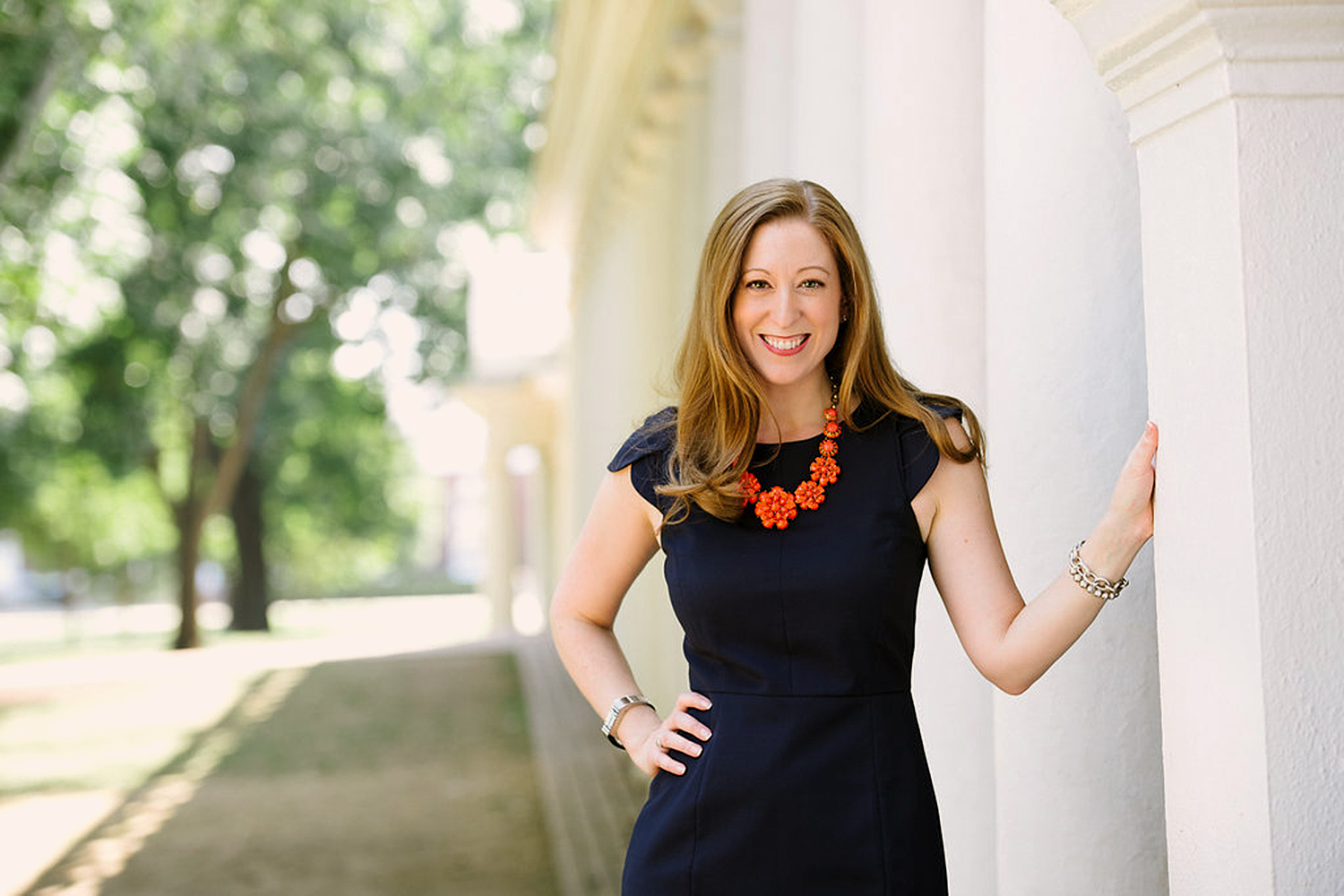Long before they ever arrive at the University of Virginia, many new students feel as if they already know “Dean J.” With her well-known blog, “Notes from Peabody,” Associate Dean of Admission Jeannine Lalonde is often the first administrator that prospective students and parents encounter as they begin the research and application process.
For years, Lalonde has used her blog to demystify the UVA admission process for students and parents. She posts regularly and is known for her willingness to answer questions in the comments section or through her other social media accounts.
With application deadlines for 2017 looming – Nov. 1 for early action and Jan. 1 for regular action – Lalonde joined UVA Today on Thursday for a Facebook Live chat to address some of the most common questions prospective students and parents have at this time of year.
The full video is available here and you can read an excerpt of her responses below.
Q. How should students decide whether to apply early or regular action?
A. Early action versus regular decision is definitely a big choice, and at UVA, early action is not binding. It just means that the student is acting early. They haven’t decided on a school. They’re not making a commitment to us.
For us, it’s the same review no matter when a student applies. We’re not easy on one group or the other.
So I think when a student is making the decision about what the best timing is for them, they need to think about how well the first three years of high school have gone. If they can look at their program and say, “It builds nicely. My grades are pretty consistent,” then maybe they’re ready for early action. If they’re rebounding from something – maybe they got sick sophomore year, missed a bunch of school and their grades suffered, or the transition to junior year was a little bit tough because that’s when most students are stepping into more advanced work in a big way – if there’s anything [like that] that needs to be rebounded from, they should wait for regular decision.
Q. Does it help to send additional recommendation letters beyond the required two?
A. For the most part, we believe the first two people when they say all the nice things in those recommendations. [Students] don’t need extra people to confirm those things.
Q. Does UVA have in-state student quotas from different areas of the state?
A. We have an agreement that two-thirds of the students at UVA will be Virginia residents, so a third can be from out of state. … When it comes to further quotas, there isn’t anything. There’s no target, no restriction, no quota for a specific high school, town, county or region.
Q. Does it matter if a student has a “demonstrated interest” in UVA before applying?
A. UVA does not use demonstrated interest at all.
Q. Do admissions counselors look at students’ social media accounts?
A. I always like to tell students I’m online because it’s an easy way for students to get answers to questions. I don’t have time to be tracking students down on the Internet. When they ask me questions, I don’t screenshot the conversations. I don’t follow students back. I’m literally there [online] because it’s easier for students to reach out after hours that way, as opposed to getting in touch with us during business hours when there’s a dean on call to answer questions by phone.
Q. How much weight do you give to extracurricular activities?
A. “Weight” is a funny word in the admission process. At UVA, we don’t give scores or use a rubric in our process. It’s not like we assign a specific weight to different components of the application.
That being said, obviously the largest factor is the academic background of the student, so transcript is the biggest piece of the puzzle. It’s a three-year piece that shows your academic development.
Activities are interesting. Obviously you want to see that students know that there’s a responsibility to contribute to a community, but students don’t get into college just because of activities. They get in because they have a compelling profile overall.
Media Contact
Article Information
October 13, 2016
/content/uvas-dean-j-answers-common-admission-questions

